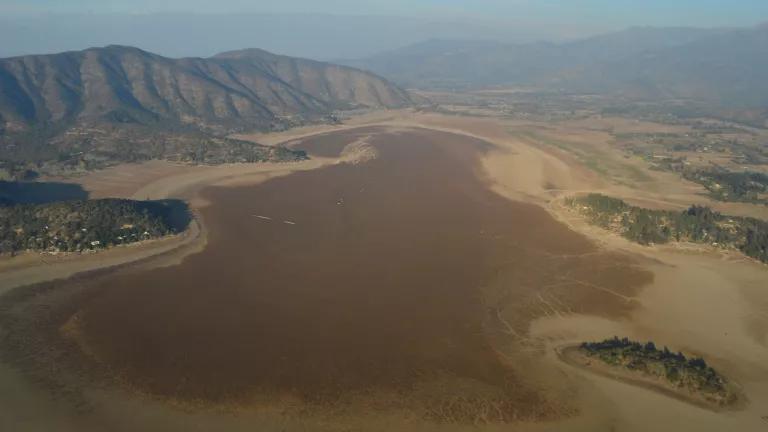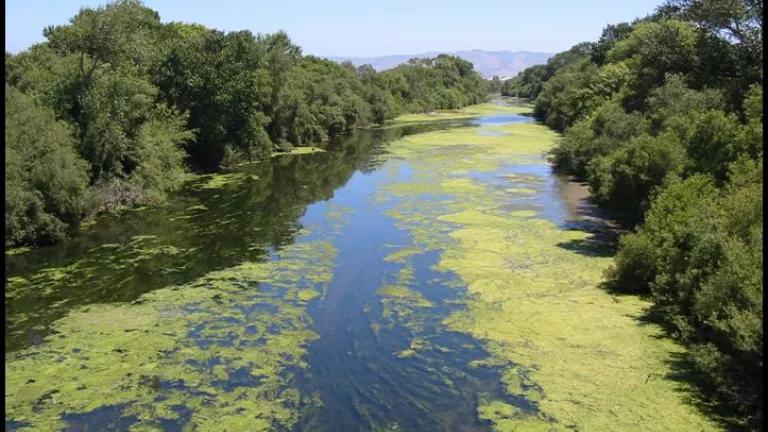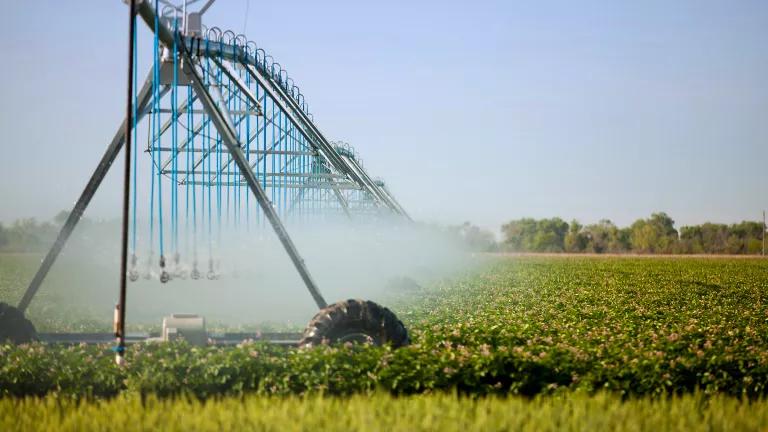Water Webinars 2020: Sharing Experiences Across the Americas
NRDC and local partners are organizing a series of webinars about ensuring that more people and ecosystems are able to access clean water.
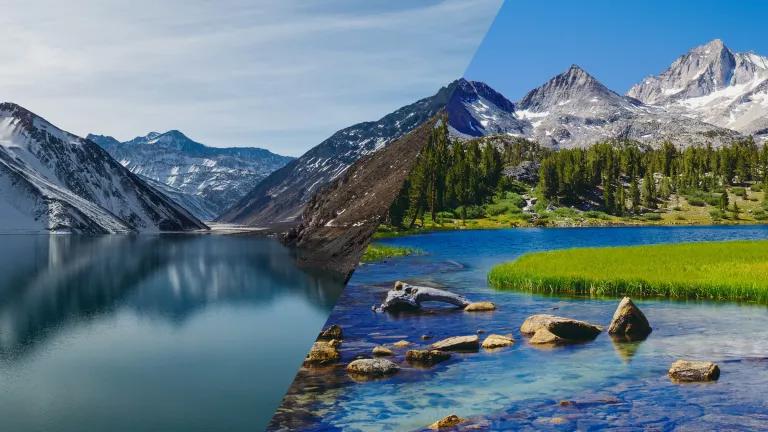
Water issues are among the gravest and most widespread problems facing Latin American communities today. Resource mismanagement, shrinking public budgets, pollution, and the changing climate all increasingly threaten both the amount and the quality of water available to people and ecosystems. Many leaders, communities, organizations, and individuals in countries throughout the region are working to overcome these challenges with new policies, programs, and tools. In collaboration with local partners, NRDC has been offering a series of webinars throughout 2020 where stakeholders can discuss their unique innovations and shared experiences. Together we aim to help more people and ecosystems—stretching from the northern deserts of Mexico to the frozen southern tip of Chile—access clean, affordable water.
The Resilient Cities Office of the Metropolitan Regional Government of Chile and the Latin America Project at NRDC present a four-part webinar series titled “The U.S.–Chile Water Exchange: Shared Water Management Experiences and Solutions.” The goal of the series is to provide a platform for experts to contribute best practices and lessons learned about water management from the United States and Chile.
Despite the distance that separates the two countries, the United States, particularly the West Coast region, shares many parallels with Chile in geography, ecosystems, and natural resources. They also share similar water challenges, including prolonged droughts, destructive storms and floods, conflict among water users, and a lack of transparency around data management. Through these bilingual webinars—which will cover topics like green infrastructure, agriculture, and climate resilience—we hope to accelerate solutions that promote safe water access for people and ecosystems in both hemispheres.
Part 1. Building Resilience Against Drought: The California Experience
This segment provides a brief overview of water scarcity in the Metropolitan Region in Chile and an in-depth look at best practices and lessons learned from California’s drought response.
Speakers
Andrea Becerra, water policy analyst with the Latin America project at NRDC
Ulrike Broschek, deputy general manager for sustainability at Fundación Chile and head of Escenarios Hídricos
Cristina Huidobro, deputy chief resilience officer for the Metropolitan Regional Government of Chile
Tracy Quinn, California director of water conservation and efficiency at NRDC
Part 2. Water-Smart Agriculture in the Context of Climate Insecurity
This second segment provides a brief overview of the best practices and lessons learned in California's agriculture sector, a case study of a livestock specialist who improved his water efficiency in Montana, and an in-depth discussion of the Chilean context.
Speakers
Presentations
Andrea Becerra, water policy analyst with the Latin America project at NRDC
Claire O’Connor, director for water & agriculture at NRDC
Guillermo Donoso Harris, professor at the Center of Water Management and Rights at the Pontifical Catholic University
Cristina Huidobro, deputy chief resilience officer for the Metropolitan Regional Government of Chile
David M. Scott, rancher and livestock specialist at NCAT
Panel Discussion
Ulrike Broschek, deputy general manager for sustainability at Fundación Chile and head of Escenarios Hídricos
Jorge Marín Alfaro, chief of staff of the executive secretary for the National Irrigation Commission (CNR)
José Miguel Morán, general manager of the Association of Irrigation and Drainage (Asociación Gremial de Riego y Drenaje)
Ernesto Ríos, regional director of the Metropolitan Region General Water Directorate (DGA)
Guillermo Donoso Harris (moderator), professor at the Center of Water Management and Rights at the Pontifical Catholic University
The urgency of broadening access to potable water and strengthening resilience across communities in Latin America has become even more obvious in the face of COVID-19. This webinar series looks at challenges and solutions from the perspectives of public sector actors, water suppliers, and people advancing innovation and technology in Mexico and Chile.
Part 1: The Role of the Public Sector in the Water Crisis in Mexico and Chile
Speakers
Andrea Becerra, water policy analyst with the Latin America project at NRDC
Verónica Rocha, foreign service officer, political affairs and cooperation, for the Embassy of Chile in Mexico
Cristina Huidobro, deputy chief resilience officer for the Metropolitan Regional Government of Chile
Adriana Chávez, cofounder of the Urban Resilience Office, Mexico
Roberto Torres Huerta, mayor of Alhué in the Metropolitan Region of Santiago
Joaquín Zebadúa Alva, president of the Municipality of Berriozábal, Mexico, and president of the Chiapaneca Network of Municipalities for Health
Part 2: Water Suppliers and the Growing Challenge to Provide Water
Speakers
Andrea Becerra, water policy analyst with the Latin America project at NRDC
Cristina Huidobro, deputy chief resilience officer for the Metropolitan Regional Government of Chile
Adriana Chávez, cofounder of the Urban Resilience Office, Mexico
Claudia Hernández, director of technical support and planning for the Mexico City Water System (SACMEX)
Jonás de Miguel, strategy director at Aguas Andinas, Chile
Sandra Vázquez Villanueva, purification and treatment manager at Mexico’s National Water Commission (CONAGUA)
Guillermo Saavedra Bascuñán, director of Chile’s National Cooperative of Rural Sanitary Services Federation (FESAN)
Part 3: Innovation and Technology—Local Solutions to Overcome the Water Gap
Speakers
Leticia Gutiérrez Lorandi, general director of coordination of environmental policy and culture in the Environmental Ministry in Mexico City
Enrique Lomnitz, general director of Isla Urbana, Mexico
Patricio Pinto, project director at CREO Antofagasta, Chile
Claudio Tapia Balboa, head of water, energy, and climate change, Municipality of Providencia, Chile; and Paloma Valenzuela, chief of the environment department for the Municipality of Providencia
Together with our Chile-based partner NAWI and experts from the United States, Europe, and Latin America, we share our experiences developing citizen science projects that promote environmental management practices in different regions of the world. What characteristics make a citizen science project successful? What can we learn from projects that failed?
Speakers
Gabriela Bawarshi, community and organizational manager, NAWI
Shannon Martin, citizen lake monitoring specialist, Minnesota Pollution Control Agency
Matías Verderau Del Río, director of Lichen, Social Innovation Laboratory
Joaquín González Garbarini, founder and executive director, Sinestesia.cc
Caren Cooper, Ph.D., associate professor, North Carolina State University
Nicole Norel, executive director, NAWI
Together with our Chile-based partner NAWI and experts from the United States, Europe, and Latin America, we share our experiences developing citizen science projects that promote environmental management practices in different regions of the world. What characteristics make a citizen science project successful? What can we learn from projects that failed?
Related Resources

California-Chile Water Nexus 1: Urban Drought Solutions

Beyond COVID-19: Tackling Water Challenges in Chile & Mexico
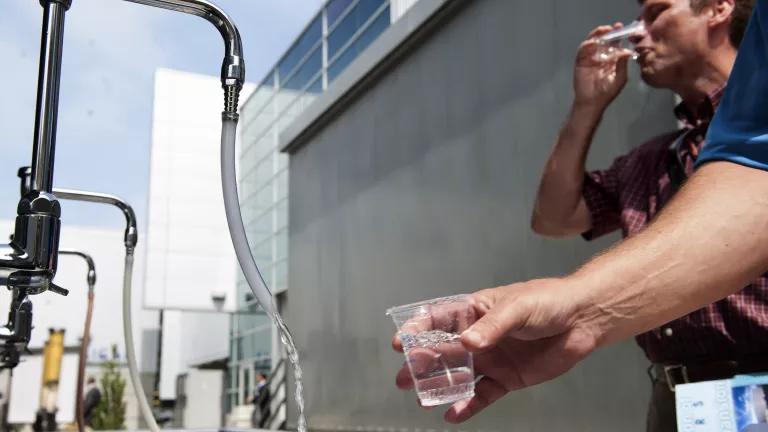
L.A. Takes a Fresh Look at Recycled Water

Green Infrastructure: How to Manage Water in a Sustainable Way
